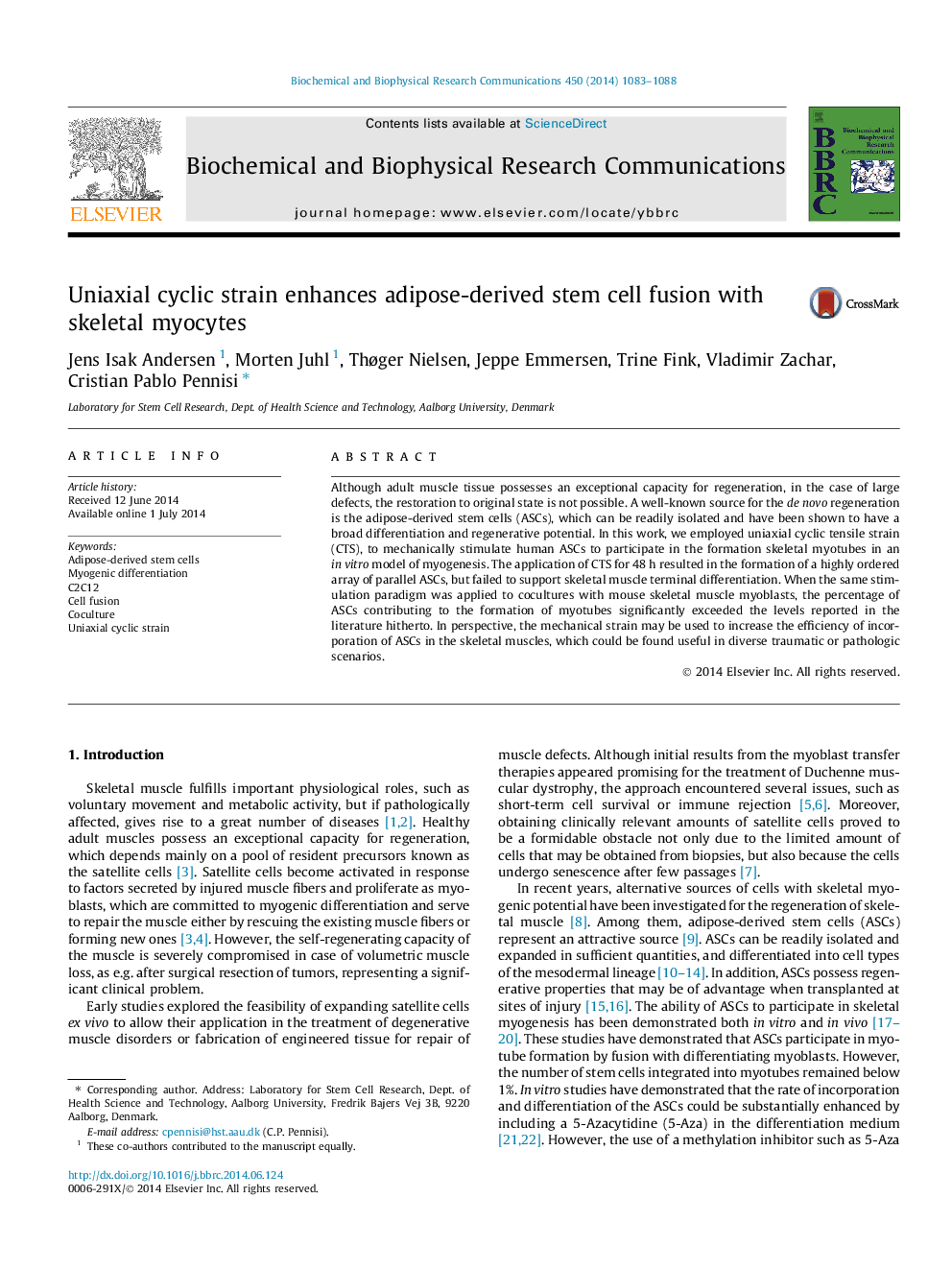| Article ID | Journal | Published Year | Pages | File Type |
|---|---|---|---|---|
| 10754664 | Biochemical and Biophysical Research Communications | 2014 | 6 Pages |
Abstract
Although adult muscle tissue possesses an exceptional capacity for regeneration, in the case of large defects, the restoration to original state is not possible. A well-known source for the de novo regeneration is the adipose-derived stem cells (ASCs), which can be readily isolated and have been shown to have a broad differentiation and regenerative potential. In this work, we employed uniaxial cyclic tensile strain (CTS), to mechanically stimulate human ASCs to participate in the formation skeletal myotubes in an in vitro model of myogenesis. The application of CTS for 48Â h resulted in the formation of a highly ordered array of parallel ASCs, but failed to support skeletal muscle terminal differentiation. When the same stimulation paradigm was applied to cocultures with mouse skeletal muscle myoblasts, the percentage of ASCs contributing to the formation of myotubes significantly exceeded the levels reported in the literature hitherto. In perspective, the mechanical strain may be used to increase the efficiency of incorporation of ASCs in the skeletal muscles, which could be found useful in diverse traumatic or pathologic scenarios.
Related Topics
Life Sciences
Biochemistry, Genetics and Molecular Biology
Biochemistry
Authors
Jens Isak Andersen, Morten Juhl, Thøger Nielsen, Jeppe Emmersen, Trine Fink, Vladimir Zachar, Cristian Pablo Pennisi,
